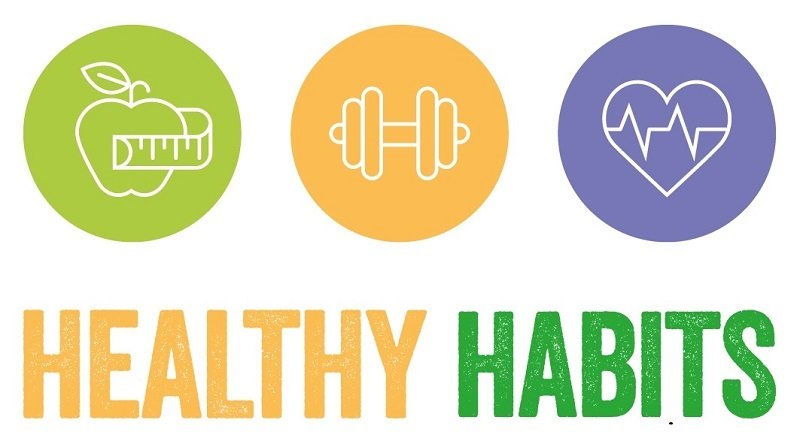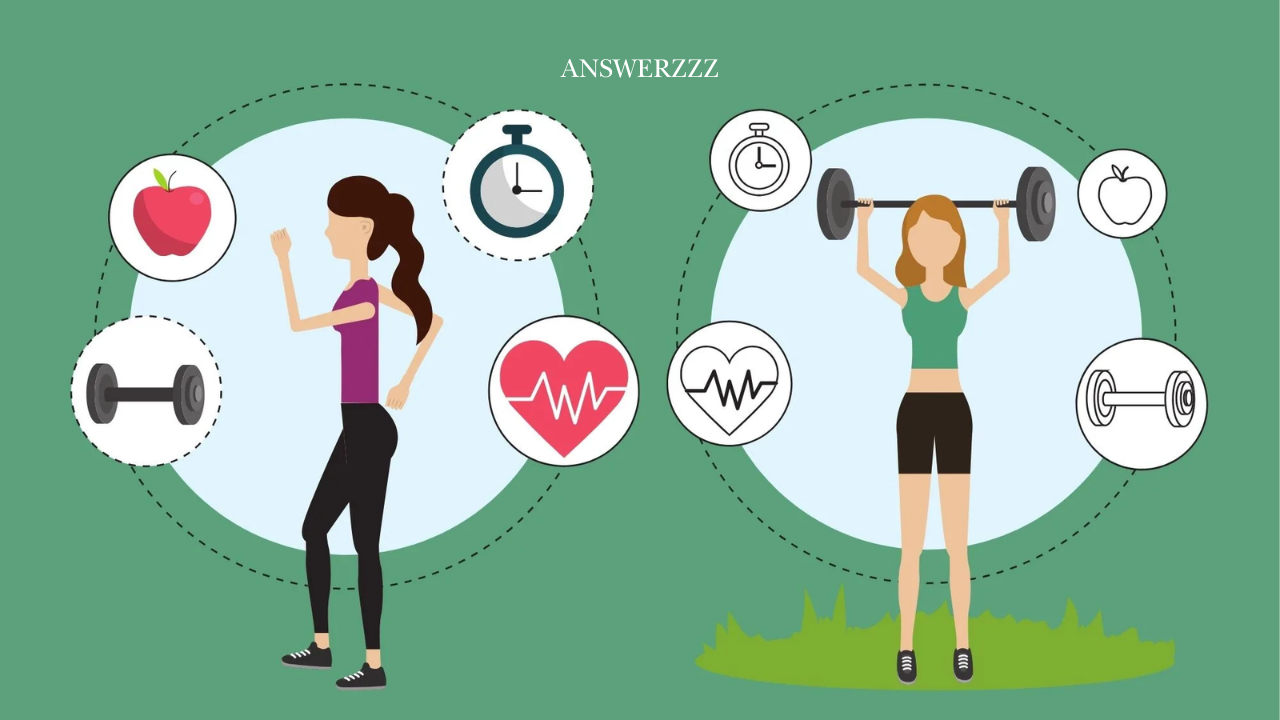As we approach 2025, it’s a great time to assess our lifestyles and develop healthier habits that can sustain our physical, mental, and emotional well-being. With the ever-evolving pace of modern life, maintaining balance becomes increasingly important for achieving long-term health. Building healthy habits doesn’t just mean focusing on what we eat or how much we exercise; it encompasses a holistic approach to lifestyle choices that contribute to overall well-being. In this article, we’ll discuss actionable and sustainable tips to help you cultivate a balanced, healthy lifestyle for 2025 and beyond.
1. Prioritize Physical Activity

One of the most important pillars of a balanced lifestyle is regular physical activity. Exercise not only keeps your body in shape but also boosts mental health by reducing stress and increasing the release of mood-enhancing chemicals like endorphins.
A. Make Exercise a Daily Routine
Incorporating physical activity into your daily routine is crucial. Aim for at least 30 minutes of moderate-intensity exercise most days of the week. This can include walking, cycling, swimming, or dancing. For those with limited time, consider shorter, more intense workouts such as high-intensity interval training (HIIT), which has been proven to offer similar benefits in a fraction of the time.
B. Strengthen Your Muscles
Adding strength training to your fitness regimen is essential for maintaining muscle mass, which naturally declines with age. Strength training exercises, such as weight lifting, bodyweight exercises (like squats and push-ups), and resistance band workouts, should be performed at least two days a week. These exercises enhance metabolism and bone density while promoting overall physical resilience.
C. Engage in Flexibility and Balance Exercises
Incorporating activities like yoga, Pilates, or tai chi can improve flexibility, balance, and mental clarity. These exercises are not only good for your muscles and joints but also help manage stress, improve posture, and increase mindfulness.
2. Eat a Balanced, Nutrient-Dense Diet
A well-rounded, nutrient-dense diet fuels the body and supports long-term health. In 2025, we’ll continue to see more emphasis on whole foods and plant-based diets, as research links these eating habits with improved health outcomes.
A. Prioritize Whole, Unprocessed Foods
Aim to eat a variety of whole, unprocessed foods such as fruits, vegetables, whole grains, lean proteins, and healthy fats. These foods are packed with essential nutrients, antioxidants, and fibre that help combat chronic disease, improve digestion, and enhance skin health.
B. Embrace a Plant-Based Approach
While a fully plant-based diet may not be feasible for everyone, reducing meat consumption and incorporating more plant-based meals can have significant health benefits. Plant-based foods, such as legumes, nuts, seeds, and leafy greens, provide vital vitamins and minerals without the saturated fats found in many animal products.
C. Balance Macronutrients
Ensure you’re balancing your macronutrients—proteins, carbohydrates, and fats—throughout the day. Carbohydrates should primarily come from whole grains, fruits, and vegetables, while fats should come from healthy sources like avocado, nuts, seeds, and olive oil. Lean proteins, including fish, chicken, and plant-based sources like tofu or tempeh, should also be part of your meals.
D. Hydrate Properly
Water is essential for nearly every bodily function, from digestion to cognitive performance. In 2025, the importance of staying hydrated will continue to be emphasized. Aim for at least 8 cups (64 ounces) of water per day, but remember that individual needs may vary depending on climate, activity levels, and personal health.
3. Focus on Mental and Emotional Health
In 2025, mental and emotional well-being will be just as important as physical health. Prioritizing your mental health is a critical aspect of maintaining balance in your life. Without good mental health, it can be challenging to maintain motivation, focus, and the energy required for other healthy habits.
A. Practice Mindfulness and Meditation
Mindfulness and meditation practices have gained significant popularity due to their ability to reduce stress and promote relaxation. By incorporating these techniques into your daily routine, you can enhance your ability to manage anxiety and stay present in the moment. Apps like Headspace or Calm can be great tools to guide beginners through mindfulness exercises.
B. Cultivate Emotional Intelligence
Emotional intelligence (EQ) is the ability to recognize, understand, and manage your own emotions, as well as empathize with others. Practising EQ can lead to improved relationships, better conflict resolution, and increased happiness. Consider journaling, talking to a trusted friend, or seeing a therapist to improve your emotional awareness.
C. Get Enough Sleep
Quality sleep is foundational for good mental and physical health. Adults should aim for 7–9 hours of sleep per night. In 2025, sleep technology, such as smart beds and wearable sleep trackers, will continue to evolve and help people better understand their sleep patterns and make adjustments accordingly.
Establish a regular sleep routine by going to bed and waking up at the same time every day. Create a relaxing pre-sleep ritual, avoid caffeine and screen time late in the evening, and ensure your sleep environment is comfortable and free from distractions.
4. Foster Strong Social Connections

Humans are inherently social creatures, and social connections play a significant role in overall well-being. In today’s world, where digital interaction is prevalent, it’s crucial to nurture real-life relationships to maintain a sense of community and support.
A. Strengthen Relationships with Family and Friends
In 2025, maintaining strong relationships with family and friends will continue to be a key component of a balanced lifestyle. Regularly engage with your loved ones, whether it’s through in-person meetups, phone calls, or video chats. Make time for meaningful conversations, and be supportive during challenging times.
B. Expand Your Social Circles
Diverse social connections can help you gain new perspectives, learn different skills, and grow personally. Consider joining community groups, volunteering, or attending networking events that align with your interests. Building a wide network of support can also provide opportunities for collaboration and personal growth.
5. Manage Stress Effectively
In our fast-paced world, stress is almost inevitable. However, how we respond to stress can make a huge difference in our health and happiness. Developing healthy stress-management strategies is essential for living a balanced lifestyle in 2025.
A. Practice Relaxation Techniques
Incorporating relaxation techniques into your daily routine can help counteract the negative effects of stress. Deep breathing exercises, progressive muscle relaxation, and guided imagery are all effective methods of calming the nervous system. These techniques can be especially beneficial during moments of high tension or when feeling overwhelmed.
Creating a Financial Safety Net: Emergency Fund Tips for 2025
B. Set Boundaries
In 2025, setting healthy boundaries in both personal and professional settings will be more important than ever. Learning to say “no” when necessary, managing your time efficiently, and avoiding overcommitting can help reduce feelings of burnout. It’s important to recognize your limits and prioritize self-care without guilt.
C. Seek Professional Help When Needed
There’s no shame in seeking professional help to manage stress or mental health challenges. Therapists, counsellors, and mental health coaches can provide valuable tools and coping mechanisms for dealing with life’s pressures. In 2025, mental health will continue to be prioritized, with more resources and support available for individuals.
6. Stay Organized and Manage Time Wisely
Effective time management is an often overlooked aspect of a balanced lifestyle. Being organized can help you prioritize the tasks that matter most, reduce stress, and increase productivity.
A. Implement Time-Blocking Techniques
One of the most effective ways to manage your time is through time-blocking. This method involves dedicating specific chunks of time to certain tasks, which helps you stay focused and avoid distractions. Whether it’s for work, exercise, or relaxation, blocking off time in your calendar can create structure and minimize feelings of overwhelm.
B. Declutter Your Environment
An organized environment fosters a clear and calm mind. Spend time regularly decluttering your home and workspace. This can involve donating unused items, organizing documents, or simply tidying up your desk. A clutter-free space promotes productivity and reduces mental clutter.
7. Adopt Sustainable Habits for Long-Term Success
Sustainability in all aspects of life is becoming more important as we move into 2025. This includes not only environmental sustainability but also personal habits that promote long-term health and well-being.
A. Incorporate Eco-Friendly Choices
Small changes, such as reducing waste, using reusable products, and choosing sustainable food options, can have a positive impact on both your health and the planet. As environmental awareness grows, making eco-friendly choices will become an integral part of healthy living in 2025.
B. Commit to Continuous Improvement
Adopting a mindset of continuous improvement means recognizing that healthy living is a lifelong journey, not a destination. Make regular assessments of your lifestyle and set new goals for physical, mental, and emotional well-being. Celebrate your successes and embrace any setbacks as opportunities to learn and grow.

In 2025, building healthy habits for a balanced lifestyle will require intentionality, consistency, and a commitment to long-term well-being. By focusing on physical activity, a nutrient-rich diet, mental and emotional health, social connections, stress management, time management, and sustainability, you can achieve a harmonious and fulfilling life. Remember that balance doesn’t mean perfection; it means finding what works for you and adjusting as needed. Start today, and pave the way for a healthier, more balanced 2025 and beyond.



